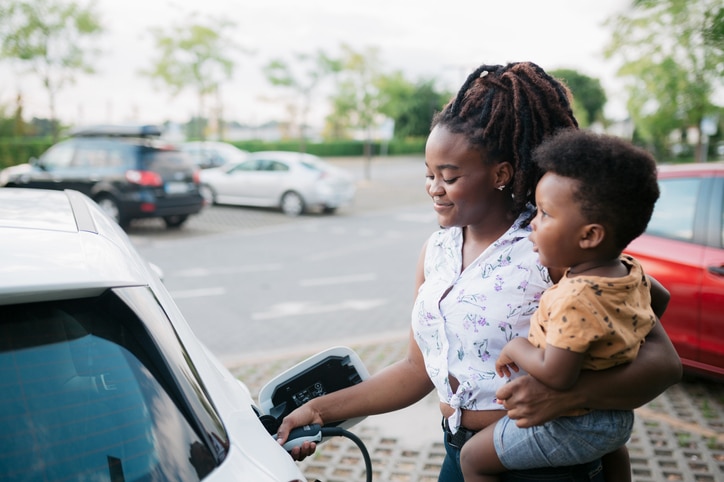Guide to Washington State’s Electric Vehicle Incentives
August 23, 2023
If you’re thinking about making the switch to electric vehicles, your timing couldn’t be more perfect. This guide is all about the various financial incentives that Washington State offers for eco-conscious drivers like you. We’ll be talking about potential savings and how to claim these electric vehicle incentives – so buckle up for a fun ride!
Incentives for New Electric Vehicles in Washington
In 2019, Washington State reintroduced the sales and use tax exemptions for vehicles powered by clean alternative fuels. This includes select plug-in hybrids and applies to both dealer and private sales of new, used, and leased vehicles sold after August 1, 2019.
Here’s the catch: The purchase price or lease payments for new vehicles must not exceed $45,000. For used vehicles, the fair market value or lease payments should stay below $30,000. One thing to note is this: You can’t use a trade-in value to reduce the price of a vehicle to meet these exemption limits.
Until July 31, 2023, Washington State offers an exemption of up to $20,000 of the sales price or $16,000 of the leased price. Starting August 2023, the exempt amount for a new vehicle purchase drops to $15,000, but it remains the same for a leased vehicle.
Tax Credits for Used Electric Vehicles
You’re eligible for the same tax exemptions when buying used EVs! The rules are slightly different, though. The total transaction for used EVs must not exceed $30,000 in fair market value or lease payments.
Until July 31, 2023, Washington State exempts up to $16,000 of the sale or leased price for used vehicles. Starting in August 2023, this amount remains the same for used EVs.
Incentives for Installing Home Charging Stations
On top of all the income tax credits, Washington State also offers a sales and use tax exemption for installing electric vehicle charging equipment. This means you’ll get a break on sales tax for both your charging station equipment and installation services, making the transition to electric driving more affordable. Plus, the convenience of charging right in your own home is a game-changer!
Fee for Electric Vehicle Owners

Something to keep in mind: Washington does charge a $150 fee for plug-in vehicles that can travel at least 30 miles using only battery power. This fee isn’t a penalty; it’s a way for electric vehicle drivers to contribute to maintaining and improving the state’s roadways. Traditional fuel taxes usually cover these costs, but since EVs don’t consume gasoline, they don’t contribute to these taxes. However, the cost is easily offset by the savings you’ll make from not having to buy gas and other state EV incentives.
Federal Tax Credit
Don’t forget about the federal EV tax credit! This could net you a credit of up to $7,500 on your federal income tax. The size of the tax credit varies based on the size of the battery used in the vehicle – the more electrically efficient, the larger the credit.
Additional Tax Rebates
Alternative Fuel Vehicle (AFV) Retail Sales and Use Tax Exemption
If you’re a business owner, the Commercial Alternative Fuel Vehicle (AFV) and Fueling Infrastructure Tax Credit is a fantastic program that can help your company transition to more sustainable vehicles. This program provides credits for purchasing new or used medium-to-heavy-duty vehicles that operate on alternative fuels.
Electric Vehicle (EV) Charging Station Rebates – Tacoma Public Utility (TPU) and Clark Public Utilities (CPU)
TPU and CPU offer rebates to help offset the cost of installing EV charging stations. Residential customers can get a $400 rebate for installing a Level 2 EV charging station from TPU, while CPU offers a $100-$500 rebate based on whether your charging station is ENERGY STAR certified and Wi-Fi enabled.
Residential Electric Vehicle (EV) Charging Station Rebate – Snohomish Public Utility District (PUD)
Snohomish PUD offers a $200 rebate for the purchase or lease of a new or used EV. They also offer a rebate of up to $350 for customers who install a qualifying Level 2 ENERGY STAR® certified EV charger in their homes. Plus, a $200 account credit to put towards charging your new or certified pre-owned EV.
The electric vehicle revolution is here, and Washington State is leading the charge. With these numerous electric vehicle incentives in place, there’s never been a better time to go electric!
If you have any additional questions please feel free to give us a call and let one of our EV Experts help you find the answers you are still looking for.
Contact Us